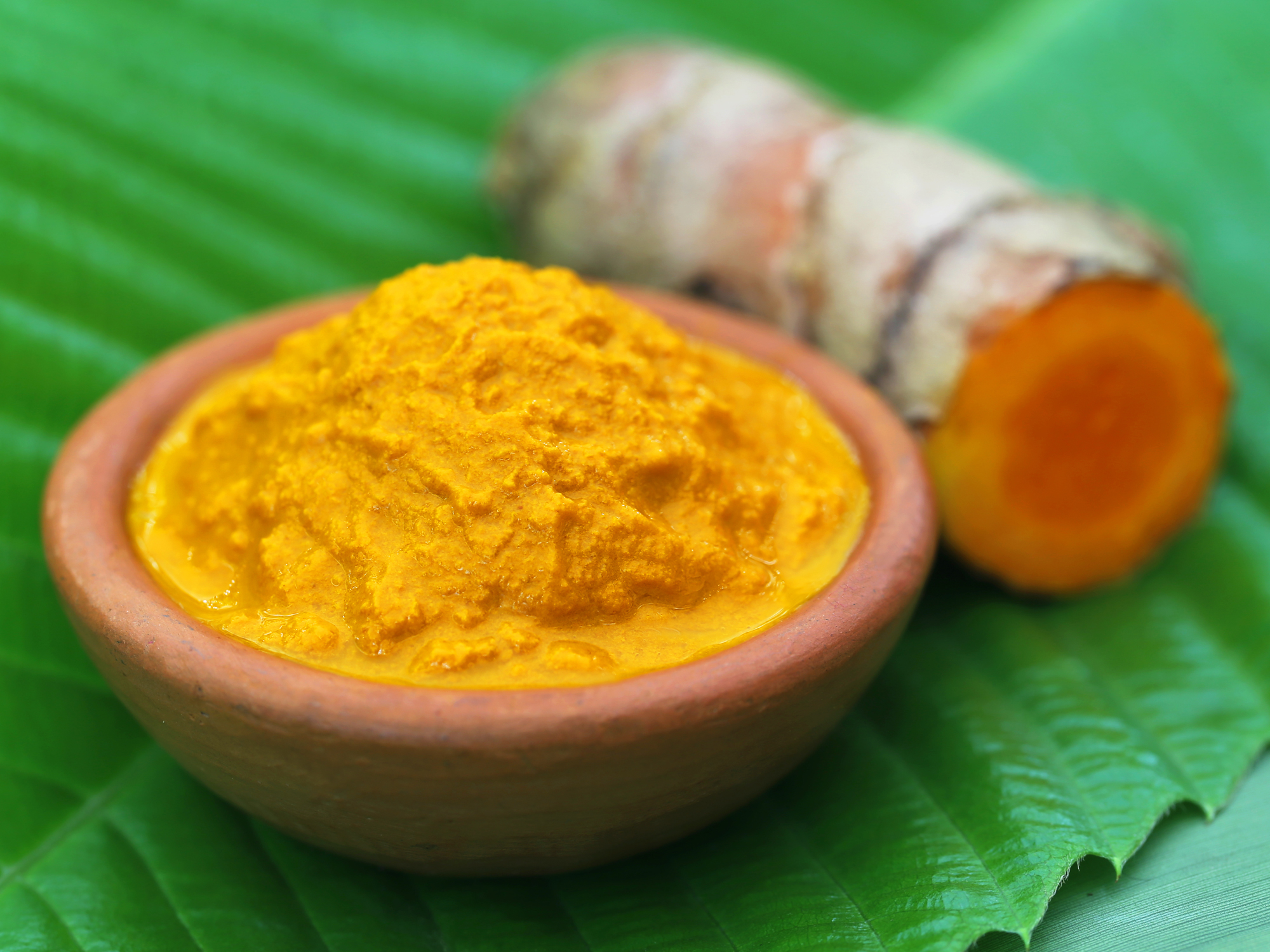Get Easy Health Digest™ in your inbox and don’t miss a thing when you subscribe today. Plus, get the free bonus report, Mother Nature’s Tips, Tricks and Remedies for Cholesterol, Blood Pressure & Blood Sugar as my way of saying welcome to the community!
Curcumin cream heals burns, psoriasis and more

Whether you’re dealing with acute skin inflammation from a rash, injury or burn, or chronic skin inflammation from a disease like eczema or psoriasis, you need something in your medicine chest that will provide relief…
Because, no matter what the cause, inflamed skin is painful, embarrassing and could lead to complications like infection or scarring.
But you don’t want to resort to topical steroids if you can avoid it. They come with strange side effects, like thinning skin, stretch marks and increased body hair growth. These commonly prescribed creams and ointments can even have more dangerous side effects if you use them long-term, like high blood pressure, bone damage and hormonal problems.
Instead, you’ll want to turn to something safe yet still effective — a potent anti-inflammatory that can heal you inside and out…
Curcumin creams cure skin ailments
You’re probably familiar with curcumin as the compound in turmeric that gives the spice its inflammation-fighting benefits. Curcumin has been shown to help with a wide range of health problems — everything from PMS to autoimmune disorders. But its’ benefits aren’t limited to internal ailments, it can help with external ailments too…
A recent research paper published by researchers from the University of California-Los Angeles claims that using curcumin gel topically can offer amazing healing power to burns and scalds.
The paper was written by Dr. Madalene Heng, Clinical Professor of Dermatology at UCLA. Dr. Heng wrote the paper based on 25 years of research she did in the lab and on her patients. During that time, she found that curcumin gel helped burn sufferers by:
- Lessening pain
- Speeding up healing time
- Alleviating inflammation
- Reducing or even eliminating scarring
She believes curcumin gel is able to provide such impressive benefits because it stops the release of an enzyme called phosphorylase kinase. This enzyme is released as part of your body’s wound healing response, and it contributes to the redness, inflammation and scarring that occurs when your skin is healing. If you can inhibit this enzyme, however, it reduces inflammation, speeds up recovery time and keeps scarring to a minimum.
But, you don’t need an acute injury like a burn to benefit from topical curcumin. Chronic skin problems like psoriasis trigger the wound healing process too…which means they also trigger the release of phosphorylase kinase.
In fact, a study published by Dr. Heng in 2000 showed that drug-induced suppression of phosphorylase kinase resolved all symptoms in psoriasis sufferers. And just last year, Dr. Heng published a paper on the therapeutic potential of curcumin in treating psoriasis because of its ability to stop the release of phosphorylase kinase.
In her research, she was able to significantly help psoriasis sufferers with a combination of topical curcumin, topical corticosteroids and the elimination of certain phosphorylase kinase-promoting elements (like bacteria, allergens, fungi, etc.). In fact, this regimen cleared psoriasis symptoms in 70 percent of patients in just 6 weeks. And 60 percent of these people received long-term remission without any further treatment.
Dr. Heng also claims that, due to its phosphorylase kinase-inhibiting powers, curcumin gel can help with:
- Eczema
- Sun damage
- Acne scarring
- Skin cancer prevention
- Surgical wound healing
Harnessing the curcumin cure
If you’re ready to harness the healing power of curcumin for your skin, there are a few things you should know…
Sometimes people dealing with chronic or acute skin problems will take curcumin internally hoping it will encourage healing. But the research shows that external application of this powerful anti-inflammatory is really where the benefits lie for skin problems.
That doesn’t mean you shouldn’t take turmeric or curcumin internally. It can improve your health in a lot ways. But it’s probably better to cook with turmeric or take a turmeric supplement than to take a curcumin supplement. That’s because turmeric is a whole food, and your body tends to absorb those better than isolated compounds. If you want to make sure your body’s getting the most from turmeric, make sure to follow the three tips for optimizing your turmeric intake that I shared in another post.
When it comes to topical application, using a cream or gel that just includes curcumin is perfectly fine. A quick google search will turn up a number of options. But be warned—many of these products aren’t cheap. You may also be able to find less expensive turmeric creams at Indian grocers, but make sure to read the label. They may contain unhealthy additives like parabens.
If you’re unable to find a topical curcumin or turmeric product that fits your budget and preferences, don’t worry. You can always try this simple recipe for making your own at home.
Sources:
-
“Curcumin.” Oregon State University’s Linus Pauling Institute. http://lpi.oregonstate.edu. Retrieved March 16, 2017.
-
“Steroids (Topical).” American Osteopathic College of Dermatology. http://www.aocd.org/?page=SteroidsTopical. Retrieved March 16, 2017.
-
“Topical curcumin gel effective in treating burns and scalds.” MedicalXpress. https://medicalxpress.com. Retrieved March 16, 2017.
-
Heng. “Phosphorylase Kinase Inhibition Therapy in Burns and Scalds.” BioDiscovery, 2017.
-
Heng, et al. Drug-induced suppression of phosphorylase kinase activity correlates with resolution of psoriasis as assessed by clinical, histological and immunohistochemical parameters. British Journal of Dermatology, Nov. 2000 143(5):937-49.
-
“Phosphorylase Kinase Inhibition.” MadeleneHengMD.com. https://www.madalenehengmd.com/phosphorylase-kinase-inhibition.html. Retrieved March 16, 2017.
-
Heng. “Phosphorylase Kinase Inhibition with Curcumin in Psoriasis.” SciTechnol, 2016.












